Asterix & Obelix: Mission Cleopatra - A Hilarious Sequel?
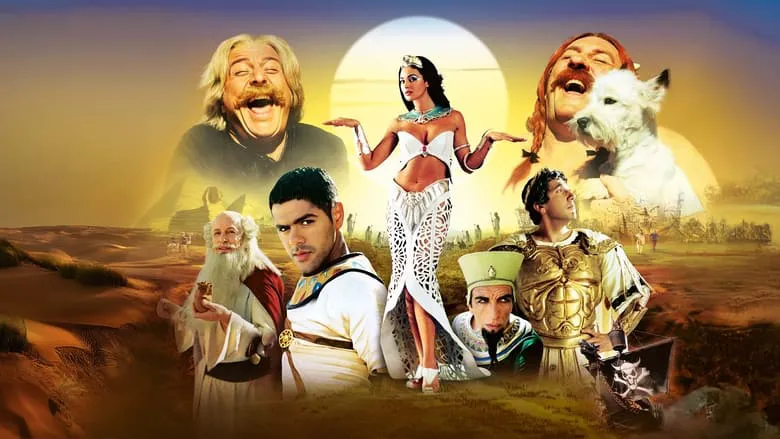
The first live-action adaptation, “Asterix and Obelix vs. Caesar,” directed by Claude Zidi, achieved success through a straightforward approach. The novelty of seeing the classic comic book come to life, with its fantastical elements, battles, and quirky, well-known characters, was enough to entertain audiences. Zidi’s casting of Gérard Depardieu and Christian Clavier, combined with a fast-paced tempo and overt parodies of stunts and special effects, proved to be a winning formula. However, replicating that success a second time would require a different strategy.
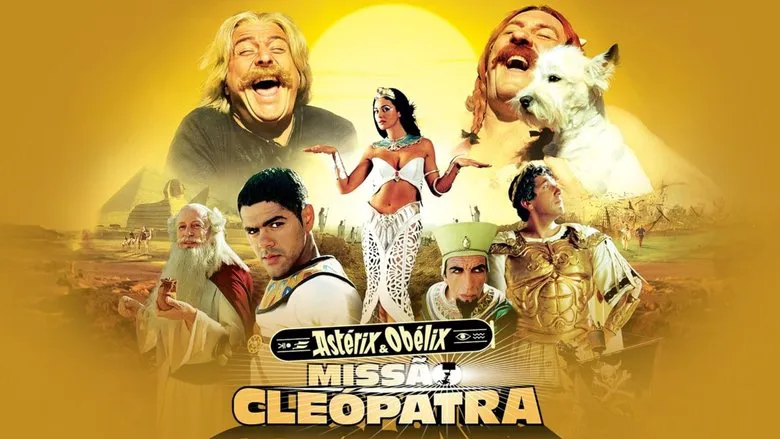
Audiences familiar with the comics already know what to expect from Depardieu and Clavier’s Gauls in Egypt. They will assist a young architect in building a magnificent palace as part of a bet between Cleopatra and Caesar. A jealous, older architect will try to sabotage their efforts, conspiring with the Roman army. But the Gauls’ magic potion, brought from their home village, will ultimately set things right. Knowing that historical accuracy is not a priority and that the new characters will be just as exaggerated as the old ones, the plot itself might only sustain about fifteen minutes of entertainment. Given that “Asterix & Obelix: Mission Cleopatra” runs for an hour and fifty minutes, the humor could easily wear thin, as was the case with the sequel to “Men in Black.” Therefore, the sequel not only has a new director but also a different approach.
A Modern Twist on a Classic Comic
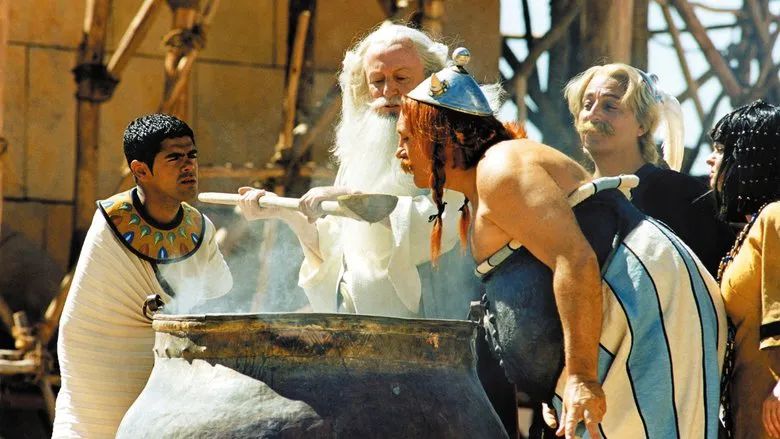
The new director, Alain Chabat, a young and trendy filmmaker, has taken a different approach. To keep the humor fresh, he incorporates contemporary references into the comic book adaptation. Having started as a comic book artist himself, Chabat has also worked in radio, television (as a weatherman), and as a popular actor (“The Taste of Others”), making him a commercially successful director. In short, he has experienced the entertainment industry firsthand, which informs the relevance of the gags and associations he creates. The classic elements that give the film scale – sphinxes, deserts, crocodiles, bazaars, and labyrinths – are all present. The triremes sail, the Nile looks authentic, and the legions are numerous. But the humor arises when the old jokes with crocodiles are complemented by jokes about the old, creating a layered effect. Wordplay like “Gimmeakiss,” “Corridorabus,” or “Hey, Belarus! - I’m not Belarus, I’m Beelinex” (which somehow evokes thoughts of Lukashenko), musical cues from modern hits overlaid on ancient Egyptian chases or romances, and parodies of popular media figures – the LGBT community, Japanese tourists, martial arts – all contribute to a dense and engaging experience, sometimes leading to completely unexpected moments. And when it’s truly funny, it’s hard to describe. The standout comedic element, which most would agree on, is the dog’s eyes in the dark. That moment alone had audiences roaring with laughter, even if it only lasted a minute.
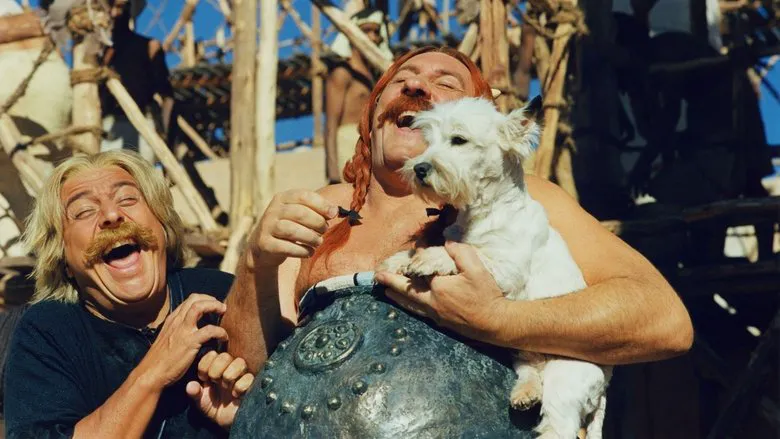
Of course, even with this “everything but the kitchen sink” approach, it’s difficult to sustain laughter for the entire hour and fifty minutes. There are lulls – with the sphinx, the pirates, and Cleopatra’s whims (played by the undeniably beautiful Bellucci) – and a general sense of disarray. The film seems to suggest that in the “modern” context, people react to external stimuli with neuro-linguistic programming instead of heroic deeds and adventures. However, when the “everything but the kitchen sink” approach falters, the “modern” plot cannot carry the weight, and the original comic book plot is no longer sufficient, having been disrupted. These gaps become increasingly noticeable.
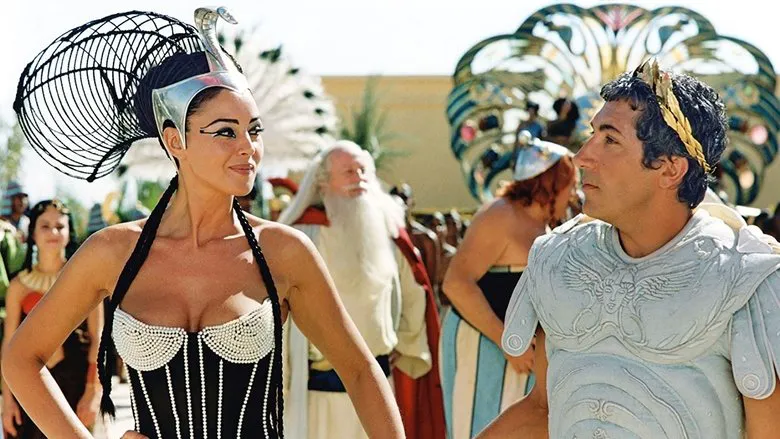
On the other hand, just remembering Depardieu acting as an icebreaker in the Nile, clearing a path for a caravan of triremes because he was hungry, is enough to elicit a chuckle, even a day or two later.
It reminds you of your former childish spontaneity.